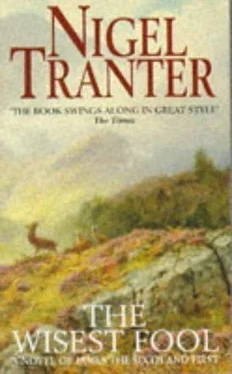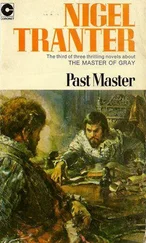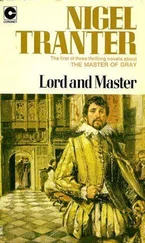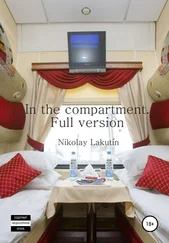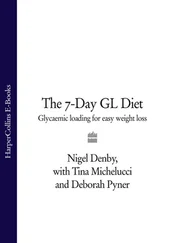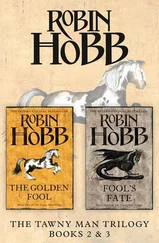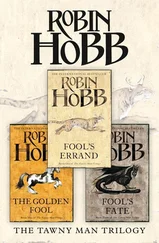Nigel Tranter - The Wisest Fool
Здесь есть возможность читать онлайн «Nigel Tranter - The Wisest Fool» весь текст электронной книги совершенно бесплатно (целиком полную версию без сокращений). В некоторых случаях можно слушать аудио, скачать через торрент в формате fb2 и присутствует краткое содержание. Жанр: Исторические приключения, на английском языке. Описание произведения, (предисловие) а так же отзывы посетителей доступны на портале библиотеки ЛибКат.
- Название:The Wisest Fool
- Автор:
- Жанр:
- Год:неизвестен
- ISBN:нет данных
- Рейтинг книги:4 / 5. Голосов: 1
-
Избранное:Добавить в избранное
- Отзывы:
-
Ваша оценка:
- 80
- 1
- 2
- 3
- 4
- 5
The Wisest Fool: краткое содержание, описание и аннотация
Предлагаем к чтению аннотацию, описание, краткое содержание или предисловие (зависит от того, что написал сам автор книги «The Wisest Fool»). Если вы не нашли необходимую информацию о книге — напишите в комментариях, мы постараемся отыскать её.
The Wisest Fool — читать онлайн бесплатно полную книгу (весь текст) целиком
Ниже представлен текст книги, разбитый по страницам. Система сохранения места последней прочитанной страницы, позволяет с удобством читать онлайн бесплатно книгу «The Wisest Fool», без необходимости каждый раз заново искать на чём Вы остановились. Поставьте закладку, и сможете в любой момент перейти на страницу, на которой закончили чтение.
Интервал:
Закладка:
It took a while for proceedings to get started, amidst all the sociability. Balmerino in particular seemed loth to commence, being apparently more interested in making himself agreeable to Heriot-no doubt in the hope that some of the affability might rub off eventually on King James in London, for he knew very well that his star was far from in the ascendant, and that his former colleagues George Home, Earl of Dunbar and Lord Treasurer, was seeking to pull him down, and had the ear of the King. Abercorn and Linlithgow knew it equally well and were careful not to seem too friendly with Balmerino-and were in consequence the more patronisingly genial with everybody else, save the accused. Hope it was, a man not notably sociable, who eventually got proceedings under way by crisply reminding the Lord Advocate that time was passing and that there was the Deacon-Convener's Dinner in Edinburgh, eighteen miles away, that evening. Sighing, and reluctantly putting down his tankard, Hamilton shrugged and bowed to their lordships across the table. All sat down, with the exception of Hamilton himself.
Clearing his throat, the Lord Advocate read out the dittay, an abbreviated version of the original charge, which outlined the case and ended by accusing Margaret Hartside, former Chambermaid to the Queen, of stealing and/or misappropriating certain jewellery, namely one diamond valued one hundred and ten pounds Sterling, other pearls, precious stones and goldsmith work to the value of three hundred pounds Sterling, all in London, and selling it to one George Heriot, jeweller at the Royal Exchange, London. The said jewellery had since been recovered; but this could by no means be held to homologate or compound the offence.
The judges nodded sagely, and Balmerino, finding the charges relevant, enquired whether the panel pleaded guilty or no?
Thomas Hope stood up, and declared that before pleading, he would make formal objection to the presence of Sir Peter Young as one of the judges in this instance. He had every respect for Sir Peter, but would point out that he had long been a domestic servitor and pensioner of the Crown, and therefore in no position to sit in judgment on another domestic servitor in what was inevitably a domestic action within the Queen's household.
This agitated the judges not a little, spoiling the rather artificially genial atmosphere-as it was meant to do-and after an uncomfortable pause for whispering, Sir Peter, a venerable, white-bearded old gentleman, rose and bowed, said that he accepted the objection and sought their lordships' permission to retire from the case. But, if their lordships agreed, and the Lord Advocate and other counsel had no objection, he would like to remain purely as an observer, since the case interested him. The advocates intimating no objection, Young moved round and sat beside Heriot at the other side of the table.
Hope then declared that his client pleaded not guilty to the charge of theft or stealing, but was prepared to plead guilty to one of misappropriation of jewellery in her care and of offering them to Master Heriot
Hamilton announced that, in the circumstances, he was prepared to abandon the charges of theft or stealing and to rely on that of misappropriation.
Balmerino, hardly glancing at his colleagues, said that he thought that, all things considered, such was a wise decision, and that they would be prepared to proceed on that basis.
Linlithgow nodded, but Abercorn held up his hand. Would learned counsel kindly define the difference between stealing and misappropriation where the goods taken were then sold to a third party and the money retained by the thief or misappropriator?
A sigh escaped from Balmerino, Hamilton and one or two others -but not from Hope, who had foreseen this as inevitable. Abercorn had been almost bound to take up a contrary attitude from the other two judges. He was a Protestant-very much so, since his whole fortune and rise to power was based on the grant of the rich abbey lands of Paisley after the Reformation, and he had been created Lord Paisley before becoming Earl of Abercom. Balmerino and Linlithgow were Catholics. The judges had, as ever, been carefully balanced out by the Lord Advocate, Sir Peter Young being a staunch Protestant-which was the main reason for Hope's objection to his sitting. Now the judgment would almost certainly be two-to-one-for Linlithgow, even though uneasy about being too friendly with Belmerino, would not disagree in law with the Lord President. The required explanation to Abercorn was a small price to pay for a favourable verdict
Hamilton left Hope to make the explanation. He informed concisely that misappropriation was a lesser offence, concerned with intent and ameliorating circumstances, a putting to wrong use rather than an actual theft In this case he could show that his client had no intent to steal; indeed she would have scarcely have taken the items to the Queen's jeweller had she so intended. The defence case, in essence, was that the accused did not in fact sell the jewels to Master Heriot but merely deposited them with him, in return for a sum of money manifestly much less than the saleable worth. Misappropriation, therefore, was a suitable indictment to which they would plead guilty.
Balmerino asked if Abercorn was satisfied. The Earl declared that he was not.
A form of trial therefore had to proceed. Hamilton described the accused's position as a trusted member of the Queen's domestic entourage, concurred that the said jewellery was put in her care, mentioned her secret marriage to one of the Earl of Orkney's gentlemen and recounted her visit to George Heriot's shop with some of the items in her care, where she deposited them and received in exchange the sum of two hundred and fifty pounds. It was the Crown's case that this was a sale, not a pawning, whatever the sum received-even though Master Heriot later gave the jewels back to Her Majesty without charge. This was in no way to the credit of the accused. The panel Hartside was, therefore, guilty of, at the least, a charge of misappropriation, a grievous putting to wrong use of items entrusted to her care. A charge of outright theft, admittedly, would be less simple to sustain, in view of the especially trusted position of the accused, and therefore he was prepared to accept the plea of guilty to the lesser charge.
Abercorn looked bull-like, and declared that he was unconvinced. It seemed to him that it was the duty of a Lord Advocate to prosecute, not to defend the accused, as he appeared to be doing this day.
Bridling, Hamilton pointed out that it was, in fact, the Lord Advocate's duty and privilege, and solely his, to decide on charges levelled. And certainly not the judges, whose duty was to decide on whether or not the said charges had been proved. That only, with sentence.
Balmerino hurriedly agreed that this was so. But he suggested that, for the Earl of Abercorn's benefit, they might hear Master Hope's defence of the panel, despite the plea of guilty.
Hope was nothing loth. He declared that Her Majesty had entrusted the said jewels, with others, to the care of the panel, as he could establish by a letter from the Queen's own hand, had thereupon forgotten them. The items were therefore, at the time of the alleged offence, pro derelictus. To dispose of them, by depositing them, for a token payment, with the Queen's jeweller -which the defence declared firmly to be no sale-could not be a theft, since the jewels were in truth lawfully in the accused's possession. The fact that it was to Master Heriot that the accused took them, and that she did by no means flee with the money or otherwise absent herself from her duties thereafter, substantiated that the panel felt no guilt. She was now, however, prepared to plead guilty to the lesser charge, out of her love and duty to Her Majesty, recognising that her action had been foolish without being criminal. Witness and productions could be brought to all these averments. There the defence confidently rested.
Читать дальшеИнтервал:
Закладка:
Похожие книги на «The Wisest Fool»
Представляем Вашему вниманию похожие книги на «The Wisest Fool» списком для выбора. Мы отобрали схожую по названию и смыслу литературу в надежде предоставить читателям больше вариантов отыскать новые, интересные, ещё непрочитанные произведения.
Обсуждение, отзывы о книге «The Wisest Fool» и просто собственные мнения читателей. Оставьте ваши комментарии, напишите, что Вы думаете о произведении, его смысле или главных героях. Укажите что конкретно понравилось, а что нет, и почему Вы так считаете.
